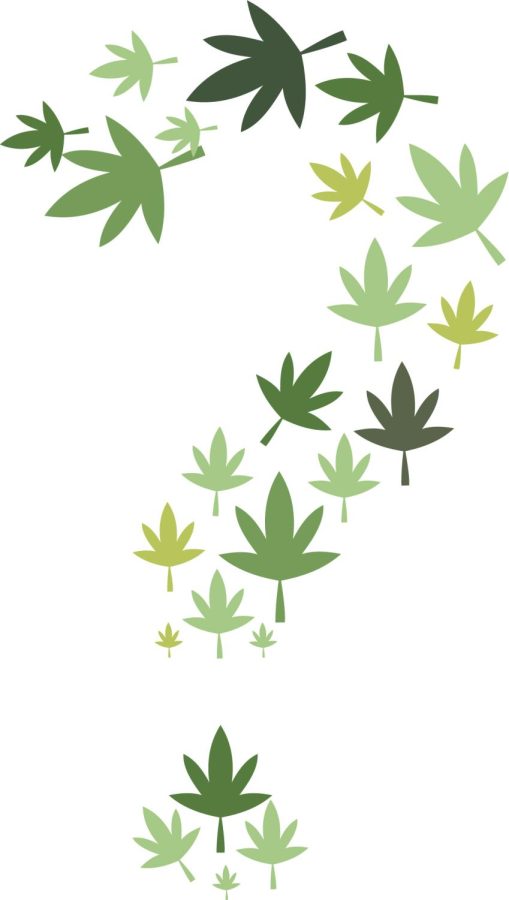Weed’s legal, what’s the fuss?
Four of five states in Pac-12 have legalized weed, yet athletes cannot take part
The big question: in legal states, why are athletes unable to smoke weed?
April 14, 2022
In February, the Committee on Competitive Safeguards and Medical Aspects of Sports shocked the college sports world when they modified the policies regarding cannabis testing for NCAA student-athletes.
While this small win can be celebrated silently amongst student-athletes who secretly use cannabis recreationally (which could be up to 25% of college athletes based on NCAA studies), the penalties and repercussions for testing positive are still very real to any athlete trying to take the edge off.
It is hard to argue against this policy in states where weed is still illegal, but is this policy necessary for student athletes in legal states, specifically for those in the Pac-12? All four other states in the conference have laws allowing for recreational weed use, with the exception of Utah. To make this issue more pressing, with the additional year of eligibility given to student athletes due to COVID-19, we will see a higher number of student athletes over the age of 21 in Pac-12 programs.
This means that a large percentage of Pac-12 athletes will be of legal age for weed use in legal states — but unable to do so without the NCAA threatening to take away eligibility after positive tests.
It is no secret that weed helps with improving sleep and mood, with there being scientific and anecdotal evidence of people using it in various ways to help their sleep patterns or get their vibe right. When young athletes are trying to balance their full plate of athletics, school and family life, threatening to take away their sports eligibility and scholarship money if they want to find a way to relax and mind their business just seems … harsh.
Besides recreationally, another common use of cannabis is CBD oils and therapeutic creams. Student athletes are asking their bodies to compete at the highest level and are deserving of being able to use these therapeutic methods as remedies to mitigate fatigue and aid in recovery processes.
The NCAA knows of the positive impacts cannabis can have on its athletes, but chooses to categorize cannabinoids as a banned substance on the same list as hormone/metabolic modulators and growth factor hormones. Why would the NCAA do this?
It is the opposite of a performance-enhancing drug and has no direct benefits to improving the athletes during competition — despite being on the same banned list as the above categories that contain substances like (human) Growth Hormone, which is banned by the World Anti-Doping Agency.
The billion-dollar business machine that is the NCAA sees these young athletes as assets and wants to keep them at their definition of 100% performance readiness to keep the industry of college sports thriving. That vision does not include letting their athletes use cannabis products, regardless of the harmless benefits they can offer in terms of pain relief and improved sleep.
The negative stigma weed has adopted since its introduction to western culture has followed it to this day and is the main reason why the older generations are against it do we really think a single individual on the NCAA board of governors is a day under 50?
Why else would the NCAA ban a drug that has no positive effect on performance? It’s because they like the fact they can control these athletes, a large majority of whom are well past 21 years of age.
“Marijuana is not considered a performance-enhancing substance, but it remains important for member schools to engage student athletes regarding substance use prevention and provide management and support when appropriate,” Dr. Brian Hanline, Chief Medical Officer of the NCAA said.
“Management and support when appropriate” for grown adults that are up to 24 years old in states where it is legal?
Give me a break.
This is the same NCAA that took over a century to allow athletes to make money off their own name and image. They did this by claiming to be supporting “amateurism” and believed that college tuition and food plans were sufficient compensation for athletes that are literally driving the business with their value.
With other sports leagues like the NFL and MLB announcing they are no longer testing for cannabis, it is time to start looking at the collegiate level to follow suit — these athletes are making the NCAA billions of dollars and cannot even enjoy themselves within the boundaries of the law because the organization thinks they know what is best for these young adults.










